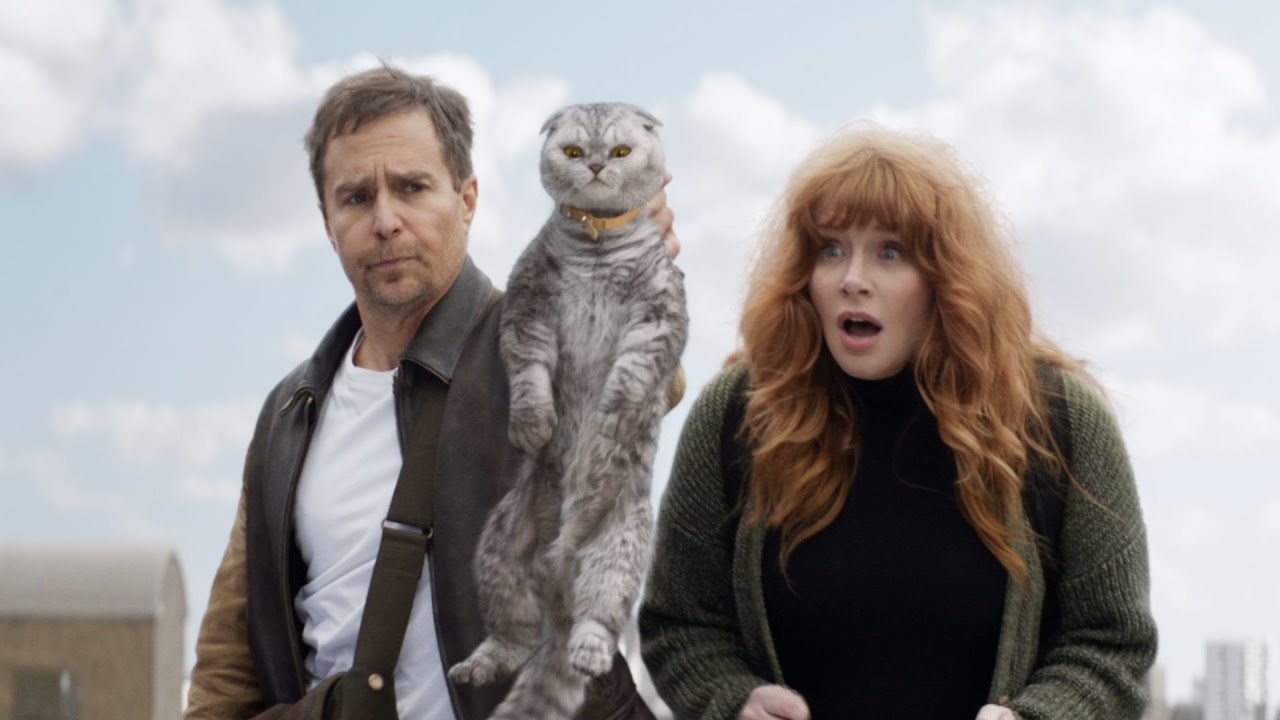Matthew Vaughn’s “Argylle” ambitiously attempts to blend the worlds of high-octane spy thrillers with a self-referential comedic twist, but ultimately loses its way in a maze of clichés and underwhelming execution. The film kicks off with a sequence that seems to promise a blend of action and humor, featuring Henry Cavill’s Agent Argylle in a glittery showdown with Dua Lipa’s LaGrange in a Greek club. What follows is a dance of bullets and banter that swiftly descends into the realm of the absurd, highlighting the film’s struggle to balance its tone between satire and serious spy drama.
As “Argylle” unfolds, it becomes evident that Vaughn has cast a wide net, attempting to spoof the spy genre by incorporating elements from successful franchises, yet the execution feels more like a haphazard imitation rather than a clever parody. The inclusion of a star-studded cast, including Ariana DeBose, John Cena, and Samuel L. Jackson, does little to salvage the film from its narrative shortcomings. Their talents are squandered on a script that fails to provide depth or meaningful engagement with their characters, rendering them little more than placeholders in a convoluted plot.
The film’s visual and technical aspects further detract from its potential. Despite the occasional flair in editing, particularly in scenes blending the protagonist’s reality with the fictional world of Elly Conway’s novels, “Argylle” is plagued by inconsistent pacing and a visual style that struggles to find its identity. The choice to intersperse black and white sequences with color photography appears disjointed, failing to add the intended stylistic nuance or narrative clarity.
Moreover, the action sequences, which should be the film’s backbone, suffer from a lack of coherence and originality. Vaughn’s attempt to innovate within the confines of fight choreography results in scenes that feel overextended and devoid of the kinetic energy that defines the best in the genre. This is exemplified in a climactic hallway fight scene, which, rather than showcasing the director’s prowess, highlights a misunderstanding of spatial dynamics and the physicality of action cinema.
The use of the Beatles’ “Now and Then” track, while initially seeming like a bold musical choice, ultimately serves as a metaphor for the film’s missteps. The decision to leverage a piece of pop culture nostalgia in a film that struggles to define its identity or deliver a coherent message feels misplaced, if not somewhat exploitative.
“Argylle” does offer fleeting moments of enjoyment, notably through Catherine O’Hara’s performance and the odd amusing line delivered by Bryan Cranston. However, these highlights are overshadowed by the film’s inability to firmly commit to either the parody it teases or the action-packed thriller it aspires to be. As the narrative progresses, the film becomes ensnared in its complexity, leaving viewers with a sense of unfulfilled potential and a disjointed experience that neither entertains as a comedy nor thrills as a spy movie.
In its ambition to be a genre-bending entry, “Argylle” inadvertently becomes a case study in the pitfalls of trying to serve too many masters. Rather than emerging as a witty critique or a memorable addition to the spy genre, it ends up as a forgettable endeavor that neither fully embraces its comedic roots nor succeeds in reinventing the spy thriller formula. Vaughn’s film, while not devoid of effort or creativity, ultimately serves as a reminder that the line between homage and parody is a fine one. Veering too far in either direction without a clear vision can lead to a project that is less than the sum of its parts.

